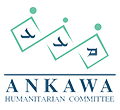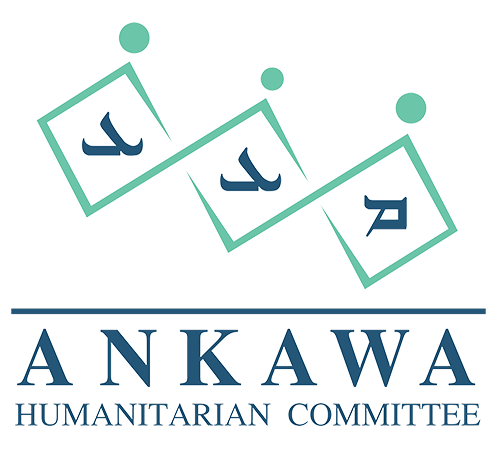Humanitarian Relief Programs
Ankawa Humanitarian Committe (AHC)
2014 – 2020
Introduction
In August 2014, the hatred of Islamic State in Iraq and Syria, known as ISIS, brought about the displacement of over half a million people the Ninewa Plain and Mosul in Northern Iraq/Kurdistan. They implemented a systematic campaign to empty the region of religious and ethnic diversity; Christians, Turkmen, Yazidis, Shabak, and others faced genocide, murder abductions, and persecution. Women were passed around as sexual slaves and/or coerced into marriage; children were forcibly recruited as ISIS combatants. Many of the minority communities fled to overseas camps or to the diaspora, with the majority left becoming internally displaced people (IDPs). While some were able to flee to relatively safe areas, others have since resided in highly volatile and economically unstable regions. By the end of 2015, 18 months after the ISIS onslaught, the International Organization for Migration IOM had recorded 175,000 families displaced from the Ninewa Plain, of whom 32,000 were still within the governorate itself. The Duhok governorate hosted 74,000 families while Baghdad, Erbil, Karbala, and Najaf each hosted around 13,000 families. Patterns of displacement have emerged whereby linguistic, religious, and/or ethnic affinity determined the choice of area of displacement. Minorities sought protection in regions where they could feel safe within the community; nearly 75,000 Christians fled to the Christian sub-district in Ankawa, Erbil. While minorities of the Shi’a faith sought refuge in governorates such as Karbala and Najaf, Yazidis from Ninewa Plain mostly relocated to the Kurdistan Region of Iraq (KRI) or Kurdish-controlled parts of northern Ninewa. Those who could only go to camps were effectively divided according to their ethnic and/or religious belonging.


Chaldean Archdiocese of Erbil’s Humanitarian Response
The IDPs who fled to Erbil and specifically Ankawa had to flee their homes in the middle of the night and were not able to take any of their belongings. ISIS burnt their homes, they stole their possession, they destroyed precious photographs of their lives and ancestors, and they took away their lives, livelihoods, and education for their children.

People were left with nothing but the clothes they were wearing in the sweltering heat of August. Their futures had disappeared. All of a sudden, they were refugees dependent on the charity of others. They had nothing, no extra clothes, food, water, hygiene, and medications. They were stripped bare by the hatred of others. Their lives were daily being eroded by homelessness, wearing the same clothes and not being able to even take a proper wash. They lived through anxiety, trauma, and the overriding fear that their futures in Iraq were destroyed forever.
The immediate response of the Chaldean Archbishop of Erbil was to seek international aid, from the Local and International agencies. This and other great actions from the community and its volunteers saved up to 13,000 families from a humanitarian crisis.
The activities conducted by the Chaldean Archdiocese of Erbil to alleviate the suffering of the IDPs are briefly described in this booklet.
Humanitarian Emergency: Food, Shelter, Medicine and pastoral Care
As mentioned earlier, the IDPs did not carry anything when they were displaced from their areas of origin. The Archdiocese began to prepare immediate basic needs like water and food for everyone who sought shelter in its premises. Volunteers from the Ankawa community rushed to the churches to make this possible.
The immediate response of the Chaldean Archdiocese of Erbil included:
- Providing shelters, which included opening all church buildings and other private centers that were opened based on the Archdiocese’s request.
- Distribution of mattresses.
- Distribution of water and three meals a day.
- Opening a small field medical clinic with the help of a team of volunteer doctors who addressed basic and medical emergencies, in addition to the distribution of chronic medication.
People from different religions and ethnic backgrounds rushed to help in every way possible, from providing water and meals, to donating money, to volunteering as field assistants.
As tragic and dreadful were those first days of IDPs in Erbil, they also showed how the whole community could come together as one, proving that in times of crisis, each individual can help to ease the sufferings of others.

Seeking Donors (Conducted by Steve Rasche and John Neill)
The Archdiocese envisioned that seeking help and assistance from national and international donors will require actual raw data and details about the number and vulnerability of IDPs. Therefore, Chaldean Archdiocese of Erbil created a database for the IDPs and their needs in order to convey that message.
All the information was taken manually and converted electronically. It was an immense task but the young volunteers from Ankawa worked day and night were supervised by Fr. Salem Saka and Fr. Rayan Atto to achieve that goal.
Creating an accurate database reinforced greatly the Archdiocese’s senior advisers (Steve Rasche and John Neill) efforts in reaching out to donors and getting international support to help the vulnerable IDPs.

Shelter
1 – Rental Programs (Directed by Fr. Shwan Kakona)
Housing and shelter remained a critical need for 13,000 families most of whom had no money. During the first phase of the displacement, most IDPs stayed inside churches, unfinished buildings, camps, and schools provided by the Kurdistan government.


Transferring the families to more private shelters was deemed to be necessary, Chaldean Archdiocese of Erbil in cooperation with international NGOs set up two rental programs, run by Fr. Shwan Kakona.
The first of the two rental programs was able to support more than 9,000 IDP families from Nineveh Plain. The rent was covered fully by the Archdiocese and it lasted for three years.
The second program was based on covering a percentage of the IDPs’ monthly rental cost. Total number of beneficiaries was close to 4,250 families. With this program, the Archdiocese provided $100 – $150 per month per family.
It meant that up to some four generations of families were living together in one house, but it was better than living outside in tents or up to 20 people living in one room. Dignity and some semblance of living again, was brought to people.
2- McGivney House in Erbil (Directed by Steve Rasche)
The Knights of Columbus assisted in the construction of McGivney House, a 140-unit apartment building that provided housing for displaced families in Iraq.
McGivney House gave shelter to over 110 displaced families originally from the Nineveh plain. Special units were designed for the elderly who were left without care in the aftermath of the onslaught from ISIS.
For hundreds of IDP families in northern Iraq, uprooted from their homes by Islamic State militants in 2014, the opening of McGivney House in Erbil offered a promise of a new beginning and allowed these IDPs to once again have a dignified living in their homeland.





